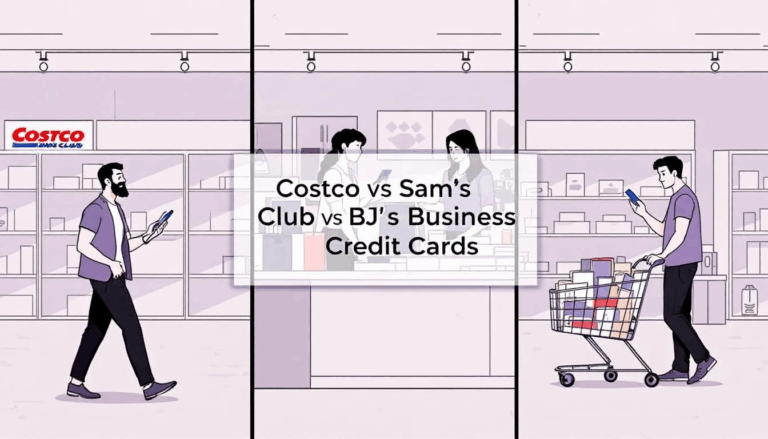What is Collateral?
Chances are you’re already familiar with collateral, but even if you aren’t, it’s a straightforward concept. Collateral is an asset used to help secure a loan. Lenders often require collateral when lending money to businesses to reduce their risk. If the borrower defaults, lenders can liquidate the collateral to recover outstanding debts.
Once an asset is pledged as collateral, it cannot be sold or used as security for another loan until the current loan is fully repaid. The borrower retains possession of the collateral while consistently repaying the loan.
In most cases, lenders prefer business assets that are worth the total cost of the loan. Banks typically require more collateral than online lenders, but you will usually need to provide some collateral in your business loan.
Secured Loans vs. Unsecured Loans
Secured loans, such as traditional term loans and SBA loans, require collateral, meaning you’ll need to pledge a valuable asset, such as real estate, equipment, or inventory, to secure financing. These loans often come with lower interest rates and more favorable terms, making them attractive for businesses with assets to offer. On the other hand, unsecured loans do not require collateral, but they typically have higher interest rates and stricter eligibility criteria, as lenders assume a greater risk of default.
Understanding the differences between secured and unsecured business loans, as well as the specific requirements for each, is crucial for business owners evaluating their financing options. By selecting the correct type of loan, businesses can secure the necessary capital to achieve their objectives, whether that involves investing in new equipment, expanding into new markets, or maintaining smooth operations.
What Counts as Collateral?
Lenders prefer business assets that they can quickly turn into cash, known as liquidation. Lenders generally favor cash reserves as collateral due to their ease of liquidity. For that reason, lenders’ most preferred assets are cash or securities, such as treasury bonds, certificates of deposit (CDs), stocks, and corporate bonds.
Other collateral includes high-value physical assets such as business equipment, vehicles, and commercial real estate. Inventory can also serve as collateral for business loans, especially in retail.
Let’s examine some types of collateral commonly used in business loans.
Types of Collateral
Any business asset that carries a measurable value and can be liquidated into cash could serve as collateral. A company’s assets, including both tangible and intangible property, may be pledged to secure a loan. Lenders prefer assets that can be quickly liquidated as collateral. The specific collateral depends on the loan type, lender, and creditworthiness of the borrower.
Here are some examples of items used as collateral in business financing:
- Equipment
- Vehicles
- Heavy machinery
- Real estate and buildings
- Inventory
- Accounts receivable and future sales
- Cash reserves
- Securities
- Personal assets
How Much Collateral Do I Need for a Business Loan?
The amount of collateral you need depends on the type of loan, the amount you’re requesting, your credit history, current business debt, and the lender. Lenders often verify that borrowers can repay any amount they borrow before processing a loan.
In most cases, lenders want assets that can cover 100% of the loan amount. In addition, you should be aware of how lenders value physical assets.
Lenders use a metric called the Loan-to-Value (LTV) ratio when deciding how much risk they feel comfortable with. The amount of collateral required is determined by the lender’s risk tolerance—more collateral reduces the lender’s risk and can lead to more favorable loan terms for the borrower. Let’s say the asset’s appraisal value is $50,000. The lender is unlikely to lend the full appraisal value, instead offering an 80% LTV. Your loan amount is then $40,000.
Lenders will generally lend a higher LTV on highly liquid assets used as collateral. Lenders do this to account for the costs of selling the asset and potential depreciation during the loan term. The Five Cs of credit (capacity, capital, character, collateral, and conditions) help determine collateral requirements.
The specific collateral required depends on the type of loan you are requesting. Some lenders may require you to offer collateral based on the loan type, loan amount, and your financial profile. Let’s review how collateral acts in different small business loans.
Loans That Typically Require Collateral
Equipment Loans: Equipment financing is when you take out a loan to purchase business equipment. Equipment loans are “self-collateralized,” meaning the asset you’re financing serves as the collateral. This type of financing is an example of a collateral loan, where the asset secures the loan and helps determine its terms and conditions. You may be familiar with other self-collateralized loans, such as auto loans or mortgages. When you apply for an equipment loan, you need to include the invoice for the equipment. If approved, the lender will send the money to the seller for payment of the equipment invoice. The new acquisition is delivered and installed, and you repay the loan with fixed monthly payments. In the unlikely event you default, the lender repossesses the financed equipment.
Small Business Administration (SBA) Loans: The Small Business Administration (SBA) is a government agency that oversees the SBA loan program. Since the government partially backs SBA loans, lenders can offer high borrowing amounts with the best interest rates and repayment terms available on the market. SBA loans are often considered the gold standard of small business financing. Most SBA loans require collateral. For example, any SBA 7(a) loan exceeding $350,000 typically requires collateral that covers the total loan amount. SBA microloans usually do not require collateral.
There is a wide range of SBA loan programs:
Loans That Can Be Secured or Unsecured
The following business loans can come as secured or unsecured, depending on the lender, loan amount, and your creditworthiness:
Business Term Loan: A business term loan is a traditional loan that involves receiving a large sum of money and then repaying it, along with interest, in fixed monthly installments over a specified period. Business term loans are available with both secured and unsecured financing. A secured business loan may use assets such as stocks, bonds, or other investments as collateral due to their liquidity and ease of cash conversion. Collateral requirements for business term loans depend on the usual factors. The amount requested, your credit score, and your cash flow all impact whether or not a lender requires collateral. Unsecured term loans usually carry a higher interest rate.
Business Line of Credit: A business line of credit operates like a credit card. You have an available credit limit and can draw the amount you need from it. Then you repay the borrowed amount along with interest in weekly payments. For the most part, business lines of credit do not require collateral. They’re typically for lower amounts, ranging between $1,000 and $250,000. Once you start approaching the higher end, however, lenders might require collateral. In addition, if you want to increase your credit limit or have a lower credit score, you might have to provide collateral.
Working Capital Loans: Working capital loans provide financing for everyday operating expenses when your business faces a cash flow shortage. While this type of loan is mainly used for short-term funding, it can also provide long-term financing. Working capital loans are very accessible and provide fast funding. They usually don’t require collateral, but some lenders may still request it.
What are the Differences Between Collateral, Liens & a Personal Guarantee?
As discussed, collateral is a business asset used to obtain loans. There are other forms of loan security, including liens and personal guarantees.
Blanket Lien
Some lenders do not require specific collateral but may require a general lien on business assets, which can ease the qualification process for loans. A blanket lien is like collateral, but doesn’t include specific assets. Some collateral loans are secured by a blanket lien, which gives the lender the right to most or all of the company’s assets in the event of default. Instead, if the borrower defaults, the lender can come after any business assets to recoup their losses. For loans with blanket liens, the quantity and quality of assets across the business may affect the amount that can be borrowed.
Personal Guarantee & Personal Assets
Lenders may require a personal guarantee, either as collateral or independently. Anyone who owns 20% or more of the company must sign a personal guarantee when a lender requires it. By signing a personal guarantee, you become personally responsible for repaying the loan if the business cannot. In this instance, lenders can pursue your personal assets or even take you to court to recover losses in the event of default.
What are the benefits of Collateral Business Loans?
Collateral-backed business loans offer several notable advantages. By pledging assets, you often secure access to larger loan amounts and more favorable interest rates, since lenders face reduced risk.
Utilizing secured loans can support business growth by providing the capital needed to expand operations, invest in new opportunities, or improve infrastructure.
The presence of collateral can enhance approval chances—even for businesses that may not have perfect credit—because it provides lenders with assurance of repayment. Moreover, collateral often allows for longer terms or more flexible repayment plans compared to unsecured alternatives, supporting better cash-flow management.
What are the drawbacks of Collateral Business Loans?
Despite their advantages, collateralized loans come with real downsides. The most significant risk is clear: if you default, you may lose valuable business (or personal) assets to the lender, which can be devastating.
Using assets as collateral also ties them up, reducing your flexibility to leverage them otherwise or adapt quickly in changing circumstances. Furthermore, lenders typically assign lower values to pledged assets due to depreciation or liquidity concerns, meaning you may need to offer assets worth much more than the loan amount to satisfy requirements.
Once the loan is fully repaid, the lender will issue a lien release, officially removing their claim on the collateral.
Collateral Business Loan Pros & Cons
| Pros | Cons |
|---|---|
| Easier approval and potentially higher loan amounts. | Risk of losing pledged assets if you default. |
| Lower interest rates and better terms. | Assets are tied up and unavailable for other uses. |
| Collateral can compensate for weaker credit. | Loan-to-value limits mean you must over-collateralize assets. |
Frequently Asked Questions
Here are some common questions about business loans and collateral.
Can I get a Business Loan without Collateral?
There are various unsecured business loan options out there. Multiple conditions affect whether a loan requires collateral. A personal guarantee may be required by lenders for unsecured loans, providing them with confidence that the borrower will repay the loan personally if the business cannot.
First, your credit score and credit history play a significant role. Borrowers with higher credit scores have a greater chance of approval for an unsecured loan.
The financial strength of your business also plays a significant role. Lenders may not require collateral if you demonstrate that you have the cash flow to support the loan payment efficiently.
The type of loan is another major factor. Traditional lenders often have stricter collateral requirements compared to alternative lenders, and typically prefer assets that are easy to value and liquidate, such as real estate and equipment.
Some loans, such as equipment financing or commercial real estate loans, always require collateral. The amount also impacts collateral requirements. Lower amount loans are the easiest to get without collateral. For example, business lines of credit and working capital loans rarely require collateral.
Alternative Business Funding Solutions
Many modern lending solutions, like invoice financing, do not rely on traditional collateral to provide funds for businesses. Several alternative business funding options operate without the need to pledge physical or business assets:
Merchant Cash Advances: A merchant cash advance provides quick access to capital by advancing money based on your future credit card sales. No physical collateral is required—repayments are automatically deducted as a percentage of daily or weekly sales, aligning your payment schedule with your business’s revenue flow.
Invoice Factoring: Invoice factoring, also known as accounts receivable factoring, involves selling your unpaid invoices to a third party at a discount in exchange for immediate cash. The invoices themselves serve as the “collateral,” and the factor evaluates your customers’ creditworthiness rather than your business assets, making it accessible even without tangible collateral.
Revenue Based Financing: With revenue based financing, funding is provided in exchange for a percentage of future revenue, eliminating the need for traditional collateral. Instead, your ongoing revenue essentially serves as the guarantee. Repayments flex up or down with your income, providing a highly adaptable structure for businesses with variable cash flow.
What are the Risks of Using Collateral to Get a Loan?
The risks associated with collateral only come into play if you default on your loan. The most important thing you can do is ensure you make your payments on time. Most lenders and institutions allow you to set up automatic payments.
With that in mind, all financing carries certain risks for lenders and borrowers. Collateral helps mitigate the risks for lenders. As a borrower, you should reduce your risk by ensuring you have the cash flow to support loan payments. If you don’t, you risk losing the asset and damaging your credit, business, and reputation.
Small Business Considerations When Using Collateral
For small business owners, deciding whether to use collateral for a loan is a significant decision that can impact both short-term operations and long-term growth. Offering collateral can help secure lower interest rates and more favorable loan terms, but it also means risking valuable business assets if the business defaults on the loan.
Before pledging collateral, small businesses should carefully assess their financial health, credit history, and the stability of their business operations. It’s wise to compare different financing options, including unsecured loans and lines of credit, to determine which best fits your needs and risk tolerance. Understanding the specific loan terms and collateral requirements is essential; don’t hesitate to seek professional advice if you’re unsure.
Ultimately, small business owners should weigh the benefits of lower interest rates and access to capital against the potential risks of losing assets. By making informed decisions and exploring all available financing options, small businesses can secure the necessary funding while safeguarding their long-term interests.
Can I get Business Loans with Bad Credit?
Business owners with a low credit score can still access funding through bad credit business loans. While these options are available as unsecured financing, adding collateral to your loan can help you get approved. You might need to offer more assets than you would need to with good or excellent credit. In addition, you could add a personal guarantee or get a co-signer.
Business Loan Collateral Final Thoughts
Collateral is often required for credit approval on business loans. Even when it’s not needed, including collateral can help lower interest rates and secure higher borrowing amounts.
As a small business owner, you need to weigh all the risks and benefits of business financing, including what assets can act as collateral. Sometimes, a business loan is the only way to grow your business or meet unexpected expenses. Knowing the value of your business assets goes a long way in helping you plan and shop for business financing.
Contact us if you want to learn more about collateral or to apply for a small business loan. Our alternative financing experts can help you find the best financing options for your needs.












